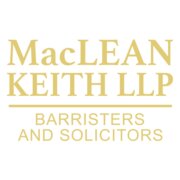Best Toxic Mold Lawyers in Regina
Share your needs with us, get contacted by law firms.
Free. Takes 2 min.
List of the best lawyers in Regina, Canada
About Toxic Mold Law in Regina, Canada
Toxic mold is a concern for many residents in Regina, Canada, due to the potential health risks it poses when present in indoor environments. This environmental hazard typically grows in damp, humid conditions and can produce allergens, irritants, and potentially toxic substances known as mycotoxins. In Regina, the law concerning toxic mold primarily intersects with property law, tenant rights, and health regulations. Property owners, landlords, and tenants all have specific rights and responsibilities related to the presence of mold in buildings. Addressing toxic mold issues often involves assessment of the environment, remediation procedures, and legal recourse if parties believe their health or property value has been compromised.
Why You May Need a Lawyer
Seeking legal advice in toxic mold situations can be crucial for several reasons. If you're a tenant dealing with unresponsive landlords about mold issues, a lawyer can help enforce your rights and seek necessary repairs. Homeowners discovering mold damage that wasn't disclosed at purchase might have legal claims against previous owners or real estate agents. Additionally, individuals whose health has been adversely affected by prolonged mold exposure may seek compensation. Legal advice is also advisable for landlords wanting to understand their obligations and avoid litigation. Overall, lawyers can assist in navigating regulations, understanding liability, and representing you in litigation or negotiation.
Local Laws Overview
In Regina, the Residential Tenancies Act provides a framework for tenant and landlord rights and responsibilities regarding rental properties, including issues related to mold. Landlords must maintain rental properties in a safe condition, which includes dealing with mold that might pose a health risk. The Saskatchewan Public Health Act and related regulations also govern health and safety requirements in residences, including addressing environmental hazards like mold. For property transactions, disclosure laws may require sellers to inform potential buyers of known mold issues that might affect the property's value. It’s crucial to be aware of these regulations to understand your rights and obligations concerning toxic mold.
Frequently Asked Questions
What is considered toxic mold?
Toxic mold is typically defined as any mold species that produces mycotoxins, which are chemicals hazardous to human health even at low exposure levels. Black mold is one commonly cited toxic mold that can cause severe health problems.
How can I tell if I have a mold problem in my home?
Signs of a mold problem include visible mold growth, a persistent musty odor, and symptoms of mold exposure in occupants, such as respiratory issues or allergic reactions. A professional inspection may be necessary to confirm a mold issue.
Are landlords responsible for removing mold?
In Regina, landlords are responsible under the Residential Tenancies Act to maintain the property and must address any mold issue that poses a health risk or violates health and safety standards.
Can I withhold rent if my landlord doesn't address a mold problem?
The law generally does not allow tenants to unilaterally withhold rent. However, tenants can apply to the Office of Residential Tenancies for dispute resolution if a landlord fails in their maintenance duties.
What health issues can result from mold exposure?
Mold exposure can lead to a range of health issues, particularly for individuals with allergies, asthma, or weakened immune systems. Symptoms can include sneezing, skin irritation, and more serious respiratory issues.
How can I prove a mold issue in a legal case?
Proof may involve professional mold testing and documentation of health effects, property damage, and any correspondence with landlords or sellers. Expert testimony may also be necessary in litigation.
Are there time limits to bring a legal claim about mold?
The statute of limitations varies based on the nature of the claim (e.g., personal injury, property damage). Consulting a lawyer promptly is crucial to understanding any time frames applicable.
What should be included in mold disclosure during property sales?
Sellers should disclose any known history of mold contamination, past remediation efforts, and any current mold issues that could affect property value or safety.
Is there a government body that regulates mold in homes?
Health Canada and local public health departments provide guidelines and oversight related to indoor air quality and environmental health, including mold issues.
What steps should I take if I discover mold in my home?
If mold is discovered, assess the extent of the damage and decide whether to handle it independently or hire professionals. Notify landlords or potential buyers promptly, and document everything for potential legal processes.
Additional Resources
For more support on toxic mold issues, consider reaching out to the following resources:
- The Office of Residential Tenancies in Saskatchewan for dispute resolution and guidance on tenant-landlord issues.
- Health Canada for information on mold and indoor air quality standards.
- Local public health departments for advice on health risks and remediation recommendations.
- Professional mold inspection and remediation services for assessment and cleanup.
- Legal professionals specializing in environmental law or property disputes for guidance and representation.
Next Steps
If you need legal assistance with a mold-related issue in Regina, Canada, the following steps can guide you:
- Document the issue thoroughly, including photographs, correspondence, and any health-related impacts.
- Consult a professional mold inspector or remediation service for an assessment of the situation.
- Reach out to legal professionals who specialize in tenant rights, real estate, or environmental law to discuss your case and options.
- Initiate contact with involved parties (landlords, sellers, etc.) to attempt resolution before pursuing formal legal remedies.
- Consider filing a complaint or seeking mediation with relevant local authorities if private negotiations fail.
Lawzana helps you find the best lawyers and law firms in Regina through a curated and pre-screened list of qualified legal professionals. Our platform offers rankings and detailed profiles of attorneys and law firms, allowing you to compare based on practice areas, including Toxic Mold, experience, and client feedback.
Each profile includes a description of the firm's areas of practice, client reviews, team members and partners, year of establishment, spoken languages, office locations, contact information, social media presence, and any published articles or resources. Most firms on our platform speak English and are experienced in both local and international legal matters.
Get a quote from top-rated law firms in Regina, Canada — quickly, securely, and without unnecessary hassle.
Disclaimer:
The information provided on this page is for general informational purposes only and does not constitute legal advice. While we strive to ensure the accuracy and relevance of the content, legal information may change over time, and interpretations of the law can vary. You should always consult with a qualified legal professional for advice specific to your situation.
We disclaim all liability for actions taken or not taken based on the content of this page. If you believe any information is incorrect or outdated, please contact us, and we will review and update it where appropriate.










